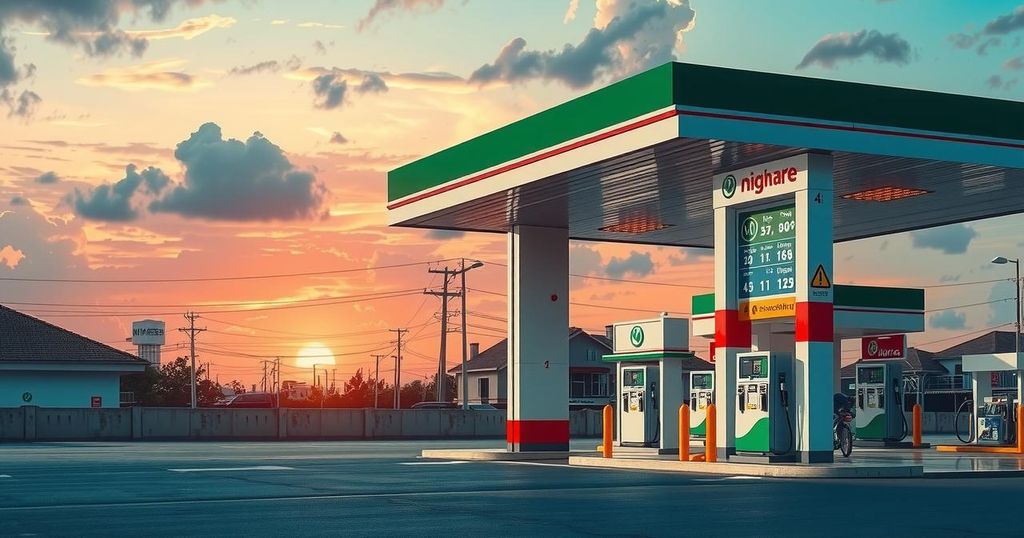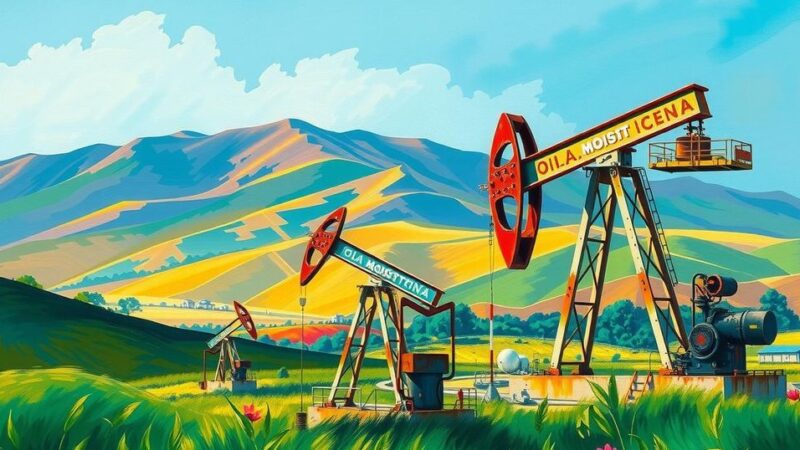Petrol prices in Nigeria have fallen to 860 naira per litre, driven by the Dangote Refinery’s pricing strategy and subsequent market competition. The refinery’s price cuts come after significant price spikes following the removal of fuel subsidies. Experts suggest the current pricing reflects a shift towards a more competitive and deregulated market.
The retail price of petrol in Nigeria has decreased to 860 naira per litre, primarily due to the actions of the Dangote Refinery, which has initiated its production to reduce the nation’s dependency on imported gasoline. Notably, the Dangote Refinery cut depot prices two times in February, resulting in a drop from a recent high of 1,030 naira. In response, the Nigerian National Petroleum Corporation Limited (NNPC), a major retailer, also announced a decrease in petrol prices shortly thereafter.
Despite Nigeria being a significant oil producer, it has historically depended on imported petrol due to the poor condition of state-owned refineries. After President Bola Tinubu eliminated longstanding fuel subsidies, petrol prices surged from around 195 naira before May 2023 to at least 998 naira in Lagos and 1,030 naira in Abuja by October 2024. In some regions, prices reached as high as 1,300 naira, exacerbating a national cost-of-living crisis.
The Dangote Refinery, owned by Aliko Dangote, began operations in September 2024, aiming to lessen Nigeria’s reliance on foreign petrol. The refinery indicated that the lowered prices were intended to offer relief to citizens during the Ramadan period. Ademola Adigun, managing director of AHA Strategies Ltd, suggested that this price reduction reflects Dangote’s strategy to secure market dominance, stating, “Nigerians can expect this trend to continue until Dangote Refinery achieves market dominance and other marketers can no longer compete.”
Dangote has refuted claims of monopolistic behavior concerning his refinery’s market share. According to Ikemesit Effiong of SBM Intelligence, the price adjustments may also be influenced by a stable currency and declining crude oil prices, suggesting, “The pump price would have increased if the naira lost value against the dollar or crude oil got more expensive.”
Clement Isong, president of the Major Energies Marketers Association of Nigeria (MEMAN), expressed that the price adjustments signify the workings of a deregulated market. He noted that MEMAN, which includes prominent retailers such as NNPC Retail and Total, represents over 40 percent of Nigeria’s retail petroleum market, affirmatively stating, “Competition is working and the new price of petrol is in line with current import parity prices.”
The reduction in petrol prices in Nigeria, attributed to the operational commencement of the Dangote Refinery and ensuing competition, marks a significant shift in the country’s fuel market. Despite past challenges related to dependence on imports and subsidy removals, this new competitive landscape may provide relief to consumers. Continuous monitoring of market dynamics will be essential to gauge the long-term impact of these changes on the Nigerian petroleum sector.
Original Source: www.hindustantimes.com






